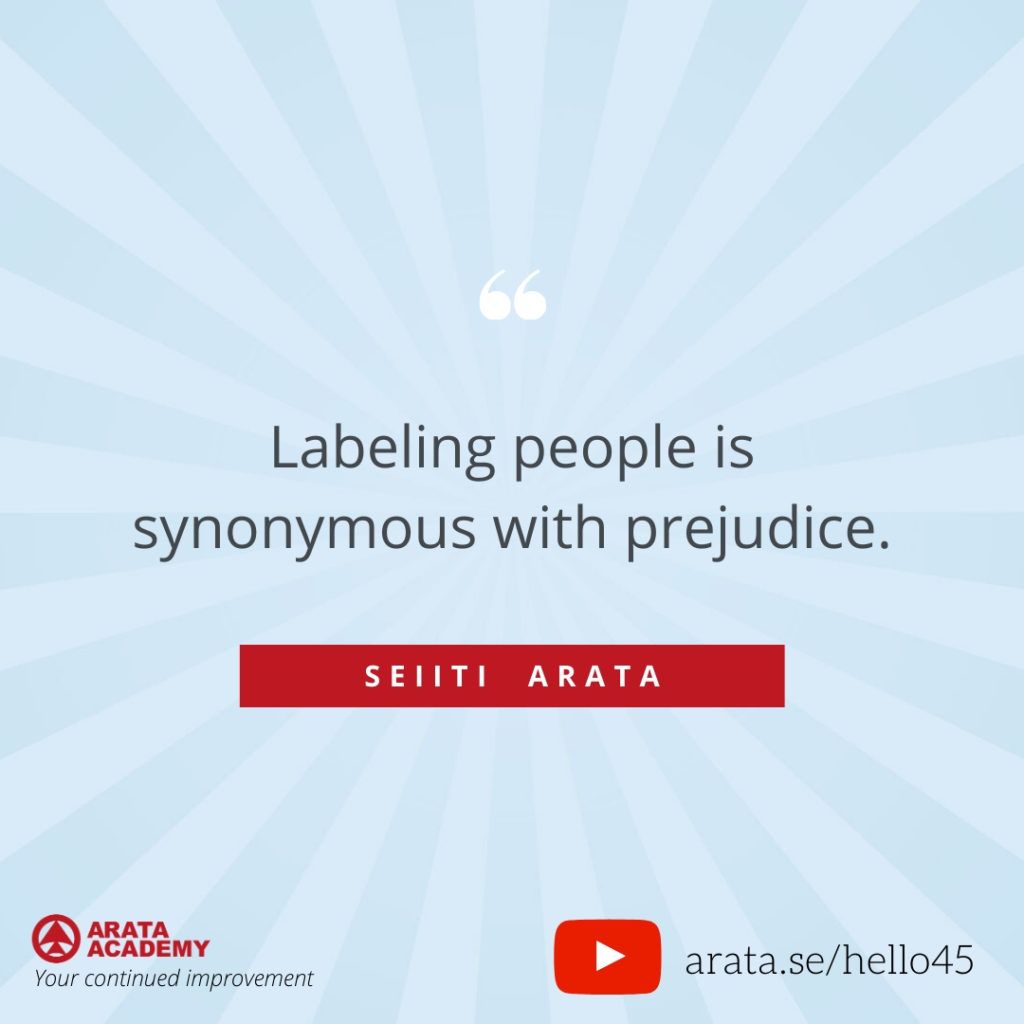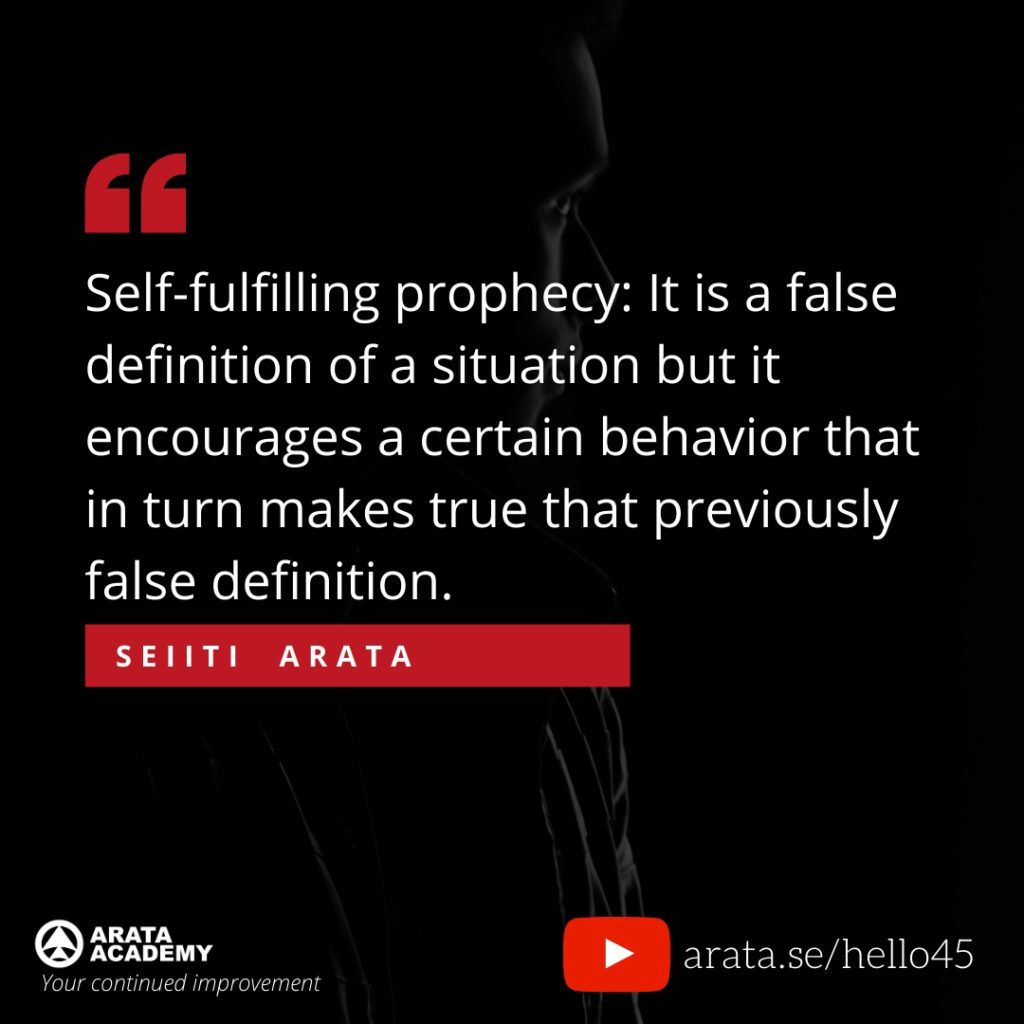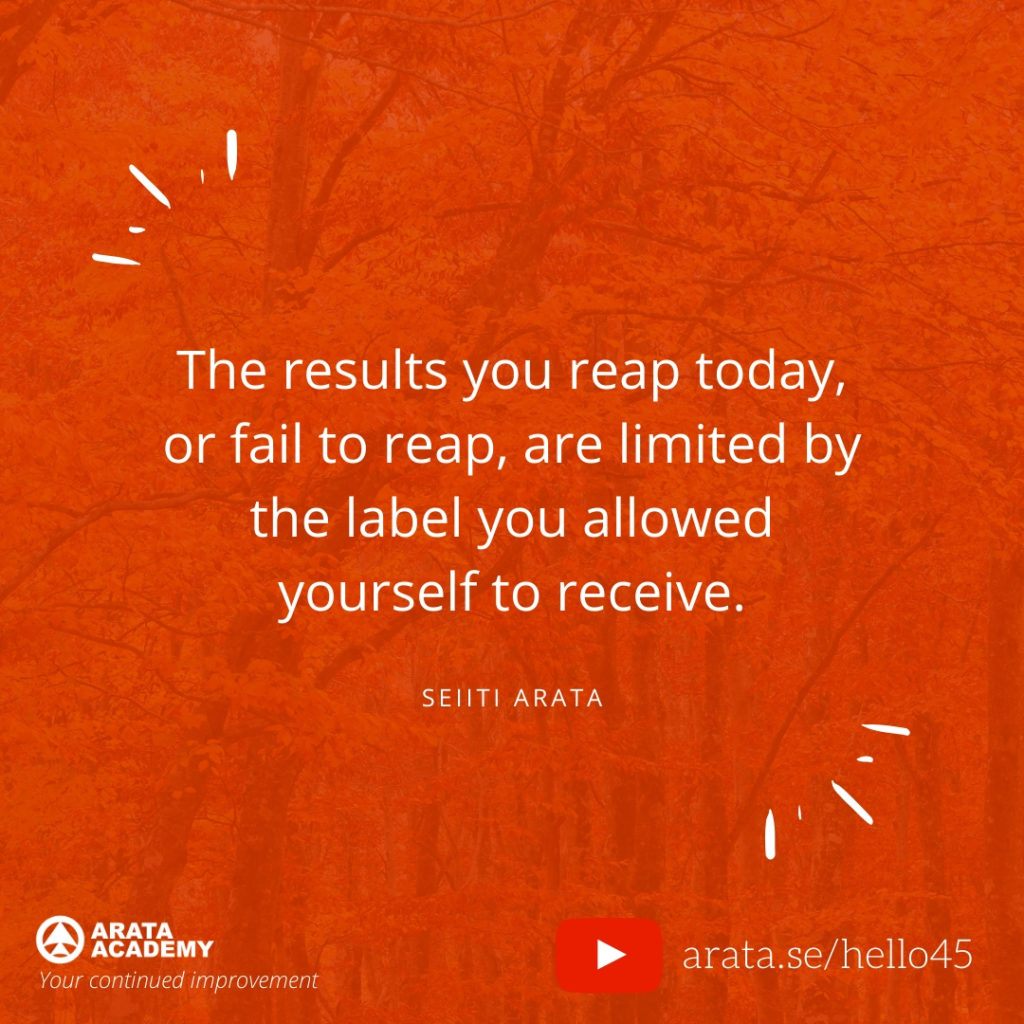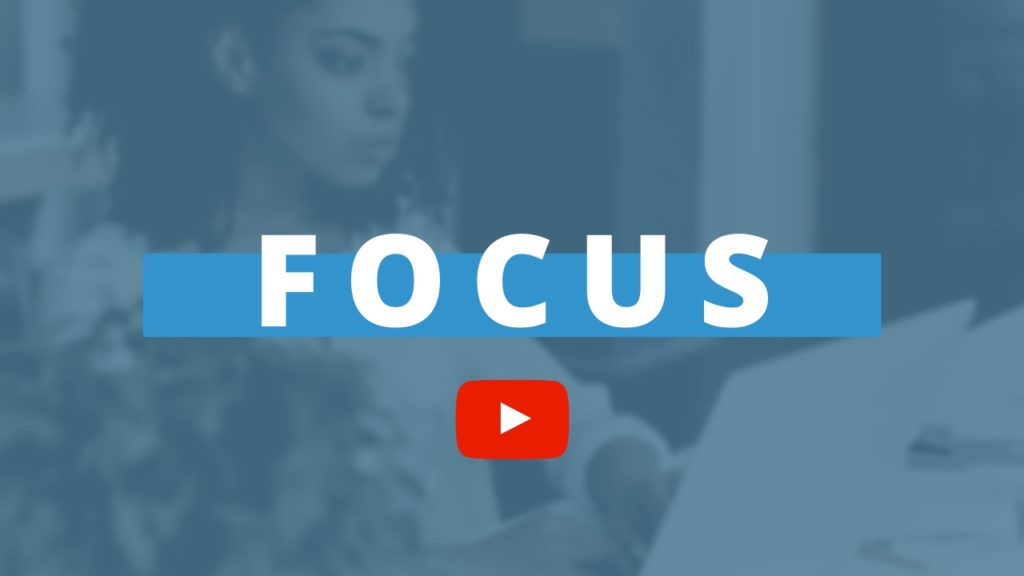Hello! Seiiti Arata. Today we’re gonna talk about prejudice, specifically the labelling of people, which was the topic of episode 04 at https://arata.se/hello04
1. Labels move us away from true knowledge.
Labelling happens when I form an initial impression, and I find it difficult for that impression to evolve, even when I’m facing situations that should prove me wrong. My perception is soiled by prejudice.
If, for example, I hear that Adrian is a greedy and selfish person (that’s the label), and I see him working late, that simple, objective fact of working late will be interpreted by me as confirmation that Adrian really wants to earn money above everything else. He is not interested in social life, and he doesn’t care about his family.
And if I hear that Britney is a dedicated and kind person (which is also a label), and I see Britney working late, I will interpret the same objective fact of working late as a confirmation that she is willing to make personal sacrifices to provide a better life for the people she loves, and she battles through hardships.

I might even think that Adrian doesn’t deserve the money he’ll earn, since that extra work that he’s doing is stealing someone else’s opportunity. Now, Britney—just look at her dedication! She therefore deserves a better life. I might even think that she should earn more, since she works harder than the others.
When I see Adrian avoiding buying a new pair of shoes, it proves that he is a despicable, miserable man. When Britney avoids buying a new pair of shoes, it proves that she is a thoughtful and minimalist person who doesn’t spend money on superficial things.
I met with Adrian on Sunday. He was carrying a book. Of course I concluded that he’s aloof, without social life. He doesn’t care about people, he’s bitter, and he doesn’t have friends. I met with Britney on Sunday, too. She was carrying a book. Besides being beautiful and kind she is also intelligent, and she’s always learning new things and sharing them with others.
You get the point, right?
2. Labels come from prejudice.
Faced with the same behaviour, we can label someone as an angel or a demon, depending on our prejudice. And notice that everyone’s prejudiced: prejudice is the initial impression, the preconception.
We just don’t want to get stuck in our prejudice, without evolving past the surface, the gossip, the first impression.

So we need to develop the ability to keep refining our perception as we gather new information, to avoid holding onto our labels, to allow ourselves to listen to the truth, to become curious about people, knowing that they change.
(Bonus tip: all of this also applies to YOU and all the labels you’ve ever placed on yourself.)
More importantly: don’t be a slave to your own labels. More precisely, don’t be a slave to the labels that your prejudice has created.
3. Be careful of the self-fulfilling prophecy.
This is the self-fulfilling prophecy: it’s a false definition of a situation that stimulates a certain behaviour, which in turn becomes a truth. A definition that was previously false has come to pass.
If I start a relationship thinking it won’t last long because she’ll cheat on me, that belief will make me into a suspicious person, always looking for clues, violating my partner’s privacy, to avoid being cheated on. And the result is an awful relationship that won’t last long. And on top of it all I’ll say, “I knew this would happen!”

What about you? Are you a slave to the labels that your prejudice has created?
Are the results that you reap today—or those that you don’t—limited by a label that was put on you? Is your self-worth determined by the way in which others treat you?
Is there a previous failure whispering in your ear that everything can happen again, so it’s better to not even try?
Do you feel difficulty dealing with some people because you always find negative meanings in their behaviour? Maybe you wish you had a better relationship with someone but you find difficult to accept some of his or her behaviours due to some labels you already assigned to them in the past?
Let’s go even deeper: does the way you deal with yourself bring about bitterness and regret? How do you label your own story? Wouldn’t it be healthier to go behind the labels and realize that behind your behaviours there is a multitude of interpretations?
And while you blame yourself for not having achieved this or that, while you blame yourself for having been immature or irresponsible, remember: there are good things that you achieved, there are dreams that you fought for, values that guided your journey. Reality allows for many points of view. It’s just a question of choosing which one to focus on.

